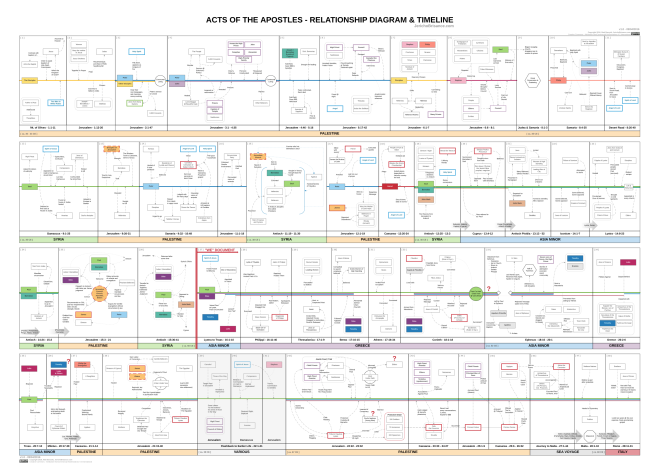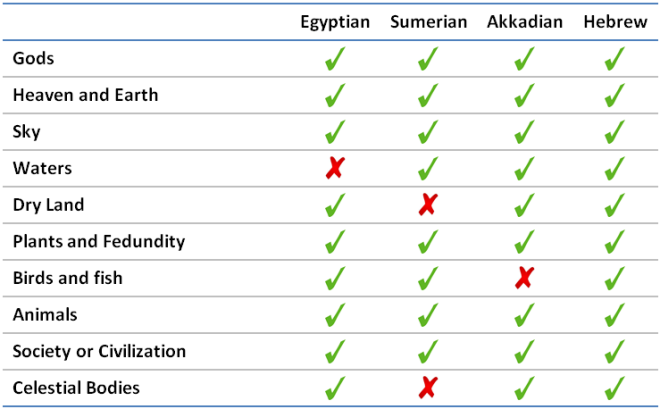*Updated 09-07-2016*
As part of my ongoing historical research efforts, I found it necessary to develop a comprehensive outline of the book of Acts. This has taken several forms, one of which is the following relationship diagram and timeline for Acts. The notion was simple, but the doing turned out to take a good deal longer than I had anticipated. I’ve decided to pause my research long enough to publish this as an infographic, in the hopes that it may prove useful to others. Feel free to print and repost; all I ask is that attribution to JerichoBrisance be included. Further details and notes are below.
Click on image for high resolution PDF.








